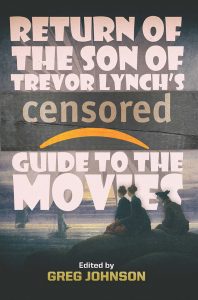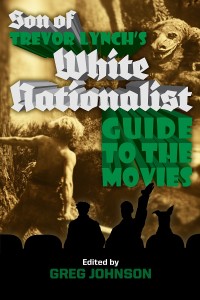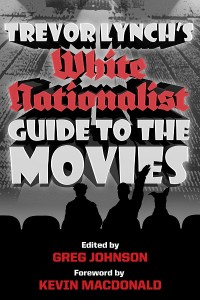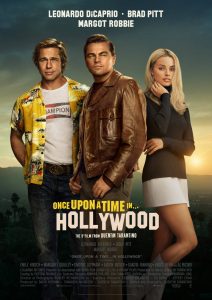Once Upon a Time in Hollywood
Posted By Trevor Lynch On In North American New Right | Comments DisabledSome of my best reviews are about Quentin Tarantino, but this won’t be one of them. Tarantino has gone from a director I loved (see my essay on Pulp Fiction [2]), to a director I loved to hate (see my reviews of Kill Bill 1 [3] and Inglourious Basterds [4]), to a director I just hated (Django Unchained [5]), to a director I just ignored.
Tarantino’s only great movie is Pulp Fiction, and at this point it is safe to declare that one a fluke. The rest of his works range from the distasteful (Reservoir Dogs), to amiable piffle (Jackie Brown), to nihilistic deconstruction (the Kill Bill movies), to genocidal—although self-deconstructing—anti-white Jewish wet dreams (Basterds), to genocidal anti-white black wet dreams (Django), to a movie I never bothered to see (The Hateful Eight).
And that brings us to Tarantino’s ninth feature film, Once Upon a Time in Hollywood. I planned to skip this one too, but the reviews, both positive and negative, intrigued me, and quite to my surprise, I really liked this film.
 [6]
[6]You can buy Return of the Son of Trevor Lynch’s CENSORED Guide to the Movies here [7]
Once Upon a Time in Hollywood does not touch on deep moral themes like Pulp Fiction, but it is better than the rest of Tarantino’s films. It is not distasteful in the ways we have come to expect from him. It is not especially violent, gross, obscene, or anti-white. Basically, it is another Jackie Brown—well-crafted, likeable, and not particularly offensive. I am inclined to be grudging with superlatives in Tarantino’s case, but Once Upon a Time in Hollywood is definitely his funniest film, and although he might cringe to hear it, it is also his most morally wholesome and satisfying story.
Once Upon a Time in Hollywood is set in Hollywood in 1969. It tells the story of two buddies, Rick Dalton (Leonardo Di Caprio), who stars in TV cowboy dramas, and his stunt double Cliff Booth (Brad Pitt). Rick’s attempt to transition from TV into movies has failed, his series Bounty Law has been canceled, and he is now playing guest heavies in TV series, drinking a lot, and dreaming of restarting his career. Rick has lost his driver’s license due to DUIs, so Cliff is now his driver and sidekick.
The main Dalton-Booth plotline, which meanders along at a rather leisurely pace, is intercut with two subplots, one about Cliff Booth meeting a member of the Manson “family” and visiting the Spahn Ranch, where they are squatting, to check in on its owner, George Spahn, whom Booth had met some years before filming at his property. The other subplot is about Dalton’s new neighbor, Sharon Tate (Margot Robbie), following her through her life in Hollywood.
 [8]
[8]You can buy Son of Trevor Lynch’s White Nationalist Guide to the Movies here [9]
Dalton, with the help of his loyal friend Booth, manages to pull out of his career slump by hard work, getting a grip on his drinking, and just general decency. He ends up in Italy, starring in three Westerns and a Eurospy romp, returning married to an Italian starlet, with fifteen pounds of pasta added to his frame.
He arrives home just in time to team up with Cliff and bring about a fairy-tale happy ending to one of Hollywood’s most gruesome true stories, which makes sense of the Once Upon a Time . . . title, which I thought was an allusion to Sergio Leone, but that was just a clever diversion.
Once Upon a Time in Hollywood is a geeky, ultra-detailed nostalgia fest, filled with vintage cars and clothes, period songs and advertisements, and a fat volume’s worth of TV, movie, and pop-culture trivia. The movie brims with actual historical characters, all of them well-cast and well-realized. The fictional characters are rich pastiches of still other historical characters. The clips and posters for fictional movies and TV shows are brilliantly realistic and often hilarious parodies. It’s all very self-indulgent, but one has to admire Tarantino’s immense energy, attention to detail, and devotion to historical authenticity.
But this poses a problem for today’s SJW critics. Windbag Richard Brody at The New Yorker condemns the film as “obscenely regressive” and “ridiculously white.” (I find The New Yorker obscenely progressive and ridiculously Jewish, but that’s a topic for another day.) Brody is silent about the fact that some of these obscenely white characters and actors are Jewish, although in other contexts, of course, Jews are “diverse.”
 [10]
[10]You can buy Trevor Lynch’s White Nationalist Guide to the Movies here [11]
Once Upon a Time is Hollywood is all about historical exactness and verisimilitude. Hollywood in 1969 was an overwhelmingly white and Jewish town. It was swarming with liberals, hippies, and downright Communists, but by today’s PC standards, such people seem like ultra-reactionaries.
But being true to the times is no defense in an industry that now peoples medieval and Elizabethan England with Negroes. It would have been a complete violation of Tarantino’s commitment to historical accuracy to black up the cast, but artistic integrity means nothing compared to the imperative of The Great Replacement. I am sure Richard Brody would have no problem with Samuel L. Jackson playing Roman Polanski. Lord knows I wouldn’t.
Tarantino has always made prigs squirm by putting racial epithets on the screen. Here, Rick Dalton sneers about “beaners” and Cliff Booth admonishes Dalton not to cry in front of Mexicans. They also refer constantly to dirty “hippies.” In one of the funniest scenes in the film, Bruce Lee pretentiously holds forth on the set of The Green Hornet until Booth has enough, calls his bullshit, and then humiliates him in a fight.
Feminists actually pushed up their problem glasses, scrunched up their faces, and counted the lines spoken by women. They are not amused.
Dalton and Booth, moreover, are two-fisted “paleomasculine” heroes, brimming with strength, mastery, honor, and camaraderie. And at the end, the excessive TV and movie violence that moralists love to condemn is shown to be cathartic, redemptive, and downright hilarious.
Tarantino hasn’t become a reactionary, of course. He’s still a self-hating white shitlib. But he’s also an artist with his own stubbornly-held vision, and he and the leading edge of the Left Zeitgeist have parted ways.
Once Upon a Time in Hollywood is full of Tarantino trademarks: a complex narrative structure, quirky characters and dialogue, a leisurely pace, banal foot fetishism, and a love of putting complex and intelligent dialogue in the mouths of Negroes. Although there are no Negroes in this film, so Tarantino accomplishes the same comic effect with an eight-year-old white girl. The performances by DiCaprio and Pitt are by turns affable and riveting. The scenes at the Spahn Ranch are utterly suspenseful and creepy, the closest Tarantino has come to creating a zombie flick.
I highly recommend this film, simply as well-crafted grown-up entertainment that does not go out of its way to insult the intelligence, race, or moral sensibilities of its overwhelmingly white audience.
The Unz Review, August 31, 2019
